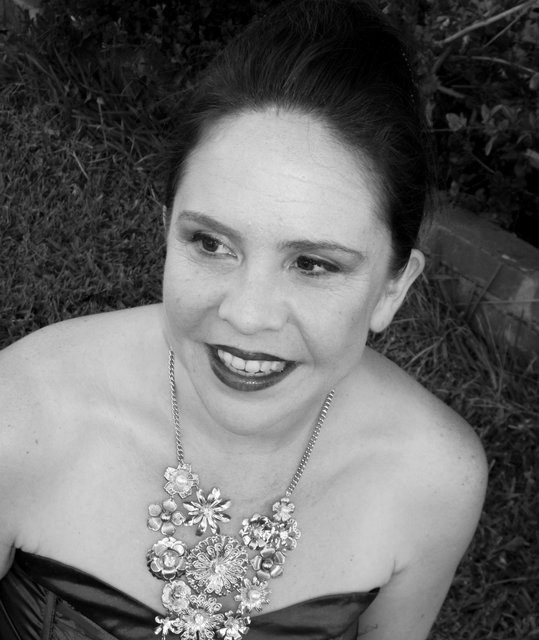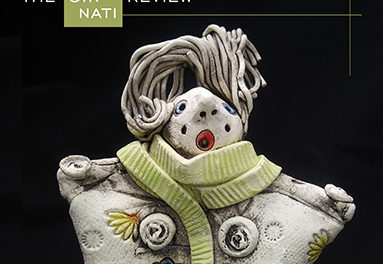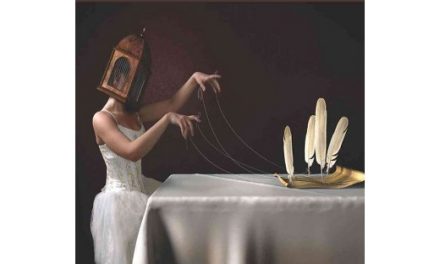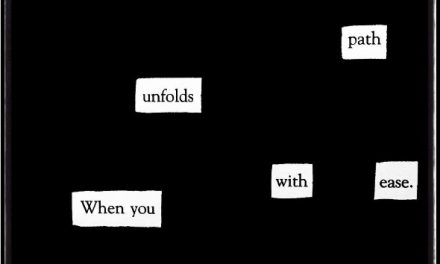And now, the second installment of Peteroy’s Irrelevant Questions for Relevant Writers, a little feature we here at CR are happy to host, where CR volunteer Don Peteroy asks the writers he admires patently absurd questions in an effort to move the literary conversation sideways (or maybe to force it to vibrate in place for a bit; we’re not exactly sure).
Heather Fowler received her MA in English and Creative Writing from Hollins University. She has taught composition, literature, and writing-related courses at UCSD, California State University at Stanislaus, and Modesto Junior College. Her work has been  published online and in print in the US, England, Australia, and India, and appeared in such venues as Night Train, Storyglossia, Surreal South, JMWW, PANK, Prick of the Spindle, Short Story America, among others. Her poetry was recently featured at MiPOesias, The Nervous Breakdown, poeticdiversity, and The Medulla Review, and has been selected for a joint first place in the 2007 Faringdon Online Poetry Competition. Her debut story collection, Suspended Heart, was released by Aqueous Books in December of 2010. A portion of her author’s proceeds will be donated to a local battered women’s charity in San Diego, CA.
published online and in print in the US, England, Australia, and India, and appeared in such venues as Night Train, Storyglossia, Surreal South, JMWW, PANK, Prick of the Spindle, Short Story America, among others. Her poetry was recently featured at MiPOesias, The Nervous Breakdown, poeticdiversity, and The Medulla Review, and has been selected for a joint first place in the 2007 Faringdon Online Poetry Competition. Her debut story collection, Suspended Heart, was released by Aqueous Books in December of 2010. A portion of her author’s proceeds will be donated to a local battered women’s charity in San Diego, CA.
Question: Let’s say you found out that every time you write a new story, poem, or essay, someone in North Dakota gets a life-threatening disease. Would you continue to write? Explain.
HF: Yes, I would still write. But I would maintain plausible denial for the first hundred victims, trying all sorts of things like dictation, secretarial help, etc. However, in the event that any writing transcribed or otherwise recorded still caused life-threatening diseases for North Dakotans, my ego to be known as the first female writer, historically, to cause North Dakotan death by the mere practice of her art would be hard to relinquish. I would also wonder if even my thoughts could be perilous to North Dakotans, and thus have survivor’s guilt for every new diagnosis.
At this point, I would have a powwow with my children, say, “Babies, Mommy’s stories are killing people.” I’m sure they would nod, aware of this already. “No, real people,” I’d say, flipping on the news for their review. If they then said, “Mommy, for the good of North Dakotans, who almost qualify as an endangered species, we fear you must off yourself right now. We will endure the sacrifice,” then I’d do what they say, you know? I believe in WWCD. Children are much wiser than grown-ups, after all.
Roy Kesey‘s debut novel Pacazo was published by Dzanc Books in February 2011; the  UK/Commonwealth edition will be appearing in 2012 courtesy of Jonathan Cape and Vintage. His previous books include the award-winning novella Nothing in the World, a historical guide to the Chinese city of Nanjing, and the story collection All Over, which made L Magazine‘s recent Best Books of the Decade list. His stories, essays, and poems have been widely published and anthologized, with work appearing in Best American Short Stories, The Robert Olen Butler Prize Anthology, and New Sudden Fiction, among other places. He is the recipient of a 2010 prose fellowship from the National Endowment for the Arts. He currently lives in Peru with his wife and children.
UK/Commonwealth edition will be appearing in 2012 courtesy of Jonathan Cape and Vintage. His previous books include the award-winning novella Nothing in the World, a historical guide to the Chinese city of Nanjing, and the story collection All Over, which made L Magazine‘s recent Best Books of the Decade list. His stories, essays, and poems have been widely published and anthologized, with work appearing in Best American Short Stories, The Robert Olen Butler Prize Anthology, and New Sudden Fiction, among other places. He is the recipient of a 2010 prose fellowship from the National Endowment for the Arts. He currently lives in Peru with his wife and children.
Question: Let’s say that you’re at a bookstore in Brooklyn. You find a literary magazine called The Back Door Review. It contains your story, “Wait.” However, it’s printed backwards. You don’t recall ever agreeing to this. As luck would have it, the editor of the magazine is standing right there. She introduces herself. What would you say to her?
RK: The first thing I would say to the person you describe under the circumstances you describe is: “Holy fucking shit! What the fuck am I doing in Brooklyn? I live in Peru! What are you, some kind of time travel ninja editor witch person? Or what, exactly?”
Then I would say, “Also, just out of curiosity, why did you name your literary magazine after a 2008 porn flick directed by Seymore Butts and starring Tom Byron, Mark Davis, and Dee?”
Then I would ask if she knows anywhere I could get a really, really, really good sandwich.











